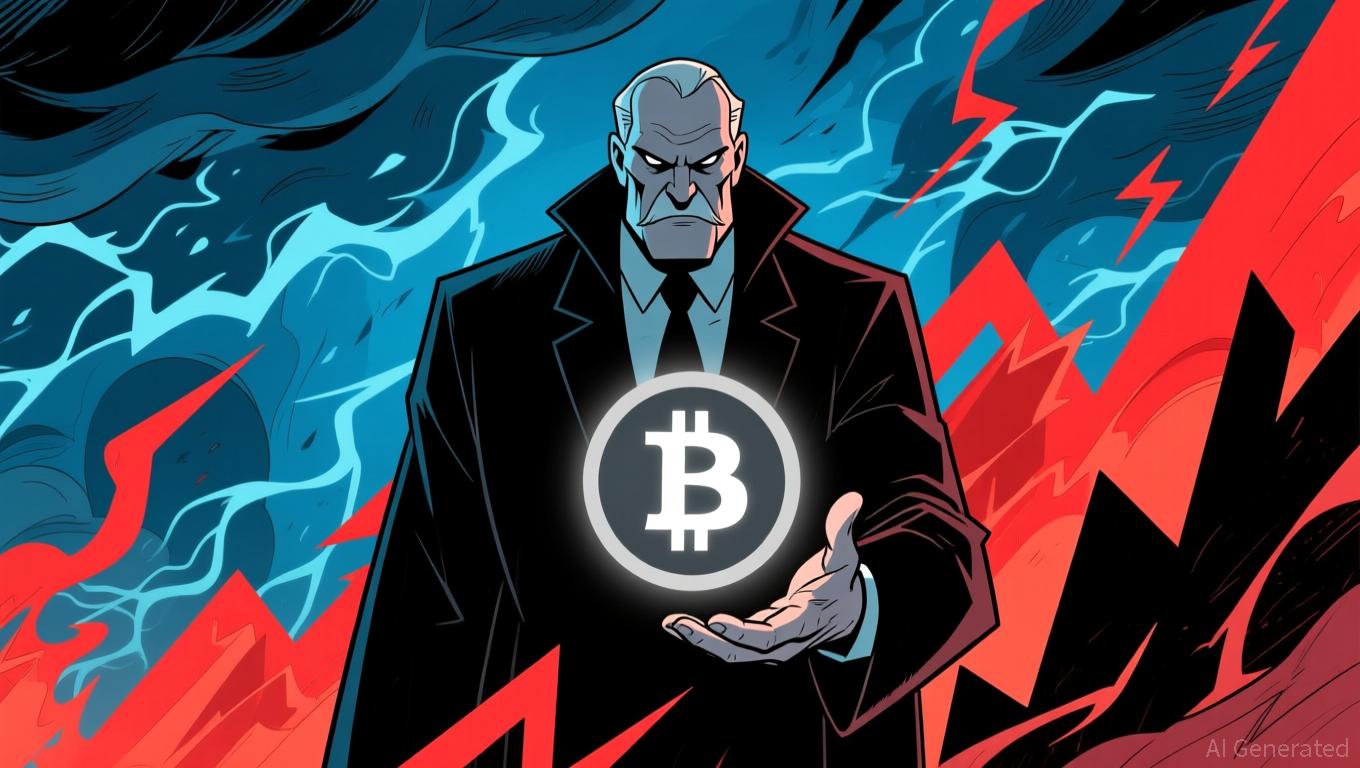Bitcoin Updates: Bitcoin's Sharp Decline Highlights ECB Doubts Amid Changing Cryptocurrency Environment
- Bitcoin fell below $90,000 amid ECB President Lagarde's persistent "worth nothing" stance, erasing 2025 gains and causing 13% average investor losses. - Lagarde reiterated Bitcoin's "highly speculative" nature despite its 2025 record high, contrasting with global digital asset adoption and ECB's digital euro project. - Market analysts debate a potential rebound near $87,000, while ECB warns of stablecoin risks amid 48% 2025 volume surge and U.S. regulatory shifts. - ECB's digital euro initiative aims to
Bitcoin’s recent drop below $90,000 has reignited discussions about its long-term prospects, especially as European Central Bank President Christine Lagarde maintains her contentious view that the cryptocurrency “has no value.” Since Lagarde made these comments in October 2025,
Lagarde has not wavered in her opinion. On a recent podcast, she
This latest downturn is reminiscent of the pullback in April 2025, when Bitcoin tumbled from $109,000 to $76,000 over an 80-day span. The current slide, though sharper in percentage terms, has lasted just 43 days so far.

Opinions are divided among market watchers on whether a recovery is near. Technical analysis points to support around $87,000, and some experts see similarities to the 2019 bounce that followed the U.S. government shutdown. Data from Santiment reveals that retail pessimism is at its lowest in a year, showing an inverse relationship with market moves. “Retail investors are expecting a drop below $70k, but history shows their predictions are often off the mark,” one observer commented. Analysts at CoinPedia suggested that a rebound could be sparked by Federal Reserve rate cuts and increased liquidity entering crypto markets after the government shutdown.
The ECB, however, remains steadfast. Lagarde again emphasized that Bitcoin will not be included in central bank reserves, citing its “incompatibility” with the ECB’s requirements for safety and regulatory standards. Instead, the ECB is fast-tracking its digital euro initiative, a blockchain-based payment platform designed to lessen dependence on non-European providers. Set for launch in 2026, the project has faced pushback from crypto supporters who argue that private stablecoins are more scalable and user-friendly. “The ECB’s strategy is overly bureaucratic and cautious,” one stablecoin issuer remarked, doubting its ability to rival global digital currencies.
The recent Bitcoin downturn has also drawn attention to broader risks in the stablecoin sector. ECB official Olaf Sleijpen cautioned that the 48% jump in U.S. stablecoin volumes in 2025 could threaten financial stability if the assets backing these tokens—mainly U.S. Treasuries—were rapidly liquidated.
With Bitcoin hovering near its lowest level in seven months, the debate over its future is far from settled. For now, Lagarde’s “worth nothing” argument appears to be gaining ground, even as some analysts predict a turnaround driven by macroeconomic trends and renewed retail interest. The ECB’s digital euro, meanwhile, could emerge as a long-term rival to both Bitcoin and foreign-backed stablecoins, potentially transforming Europe’s digital payments landscape.
Disclaimer: The content of this article solely reflects the author's opinion and does not represent the platform in any capacity. This article is not intended to serve as a reference for making investment decisions.
You may also like
Crypto Market Hits Historic Buy Zones Amid Downturn
Bitcoin Drops Below $81,000 Amid Market Volatility
Trump Removes 40% Tariffs on Brazilian Commodities
Rising Incidents of Air Rage Spark Appeals for Polite Travel, While Detractors Highlight Deeper Systemic Issues
- U.S. Transportation Secretary Sean Duffy launched a campaign urging travelers to restore civility in air travel, citing a 400% rise in in-flight outbursts since 2019. - The initiative promotes courteous behavior, such as assisting passengers and showing gratitude to crew, amid FAA data showing 13,800 unruly incidents since 2021. - Critics blame airlines for cramped seating and poor service, arguing civility efforts should address systemic issues like overcrowding and pricing rather than passenger attire.
